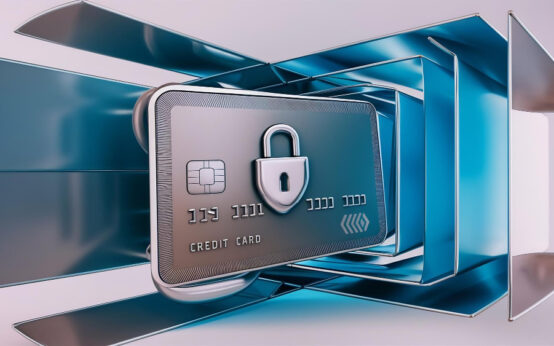Credit card fees can be a confusing and frustrating aspect of managing your finances. Whether you’re a seasoned cardholder or new to the world of credit, understanding these charges is crucial. In this guide, we will demystify the different types of credit card fees, how they affect your financial health, and strategies to avoid unnecessary costs. From annual fees to foreign transaction charges, we’ve got you covered.
What Are Credit Card Fees?
Credit card fees are charges that cardholders may incur for various transactions or activities related to their credit card usage. These fees can vary depending on the credit card issuer, the type of credit card, and how the card is used. Understanding these fees is crucial for managing your credit card effectively and avoiding unnecessary costs.
Annual Fees: Some credit cards charge an annual fee for the privilege of using the card. This fee can range from a modest amount to several hundred dollars, depending on the card’s benefits and rewards.
Interest Charges: If you do not pay your balance in full each month, you will incur interest charges on the remaining balance. The interest rate, or APR (Annual Percentage Rate), can vary widely among different credit cards.
Late Payment Fees: If you fail to make at least the minimum payment by the due date, you will be charged a late payment fee. This fee can also result in an increase in your interest rate.
Foreign Transaction Fees: If you use your credit card for purchases in a foreign currency or outside of your home country, you may be charged a foreign transaction fee. This fee is usually a percentage of the transaction amount.
Balance Transfer Fees: When you transfer a balance from one credit card to another, you may be charged a balance transfer fee. This fee is typically a percentage of the amount transferred.
Cash Advance Fees: Withdrawing cash from your credit card typically incurs a cash advance fee. In addition, cash advances often have higher interest rates and no grace period, making them an expensive option.
Over-limit Fees: Some credit cards charge a fee for exceeding your credit limit. However, this fee has become less common due to regulatory changes.
By understanding these various fees, you can make more informed decisions about using your credit card, potentially saving money and improving your overall financial health.
Types of Common Credit Card Fees

When using a credit card, it’s crucial to understand the various fees associated with it to avoid unexpected charges. Here are some common types of credit card fees you might encounter:
Annual Fees
Annual fees are charges that you pay once a year for the privilege of using a credit card. Some cards may offer benefits that outweigh the cost, while others might not. Make sure you evaluate the perks versus the fee.
Late Payment Fees
When you miss a due date for your credit card payment, a late fee is typically charged. This fee can be a flat rate or a percentage of the missed payment. Paying on time is essential to avoid these additional expenses.
Balance Transfer Fees
When you transfer debt from one credit card to another with a lower interest rate, you may incur a balance transfer fee. This fee is usually a percentage of the amount being transferred. Consider the costs versus the interest savings.
Cash Advance Fees
Withdrawing cash using your credit card often incurs a cash advance fee. This fee is typically a percentage of the amount withdrawn and might also come with a higher interest rate than regular purchases.
Foreign Transaction Fees
When you use your credit card outside of your home country, foreign transaction fees may apply. These fees usually range from 1% to 3% of the transaction amount. Look for cards that waive this fee if you travel frequently.
Over-the-Limit Fees
If your spending exceeds your credit limit, you might be charged an over-the-limit fee. However, these fees are less common today due to changes in credit card regulations.
Returned Payment Fees
If your payment is returned due to insufficient funds, your card issuer may charge a returned payment fee. This is separate from any penalties your bank might impose.
Understanding these fees can help you manage your credit card usage more effectively and avoid unnecessary costs.
How to Avoid Excessive Fees
Understand Your Credit Card Agreement: The first step to avoiding excessive fees is to thoroughly read and understand the terms and conditions of your credit card. Look for information on interest rates, annual fees, late payment fees, and foreign transaction fees.
Pay Your Balance in Full: Whenever possible, pay off your credit card balance in full each month. This helps you avoid interest charges, which can add up quickly. Set up reminders or automatic payments to ensure you never miss a payment due date.
Avoid Cash Advances: Cash advances from your credit card come with high fees and immediate interest charges. Use them only in emergencies and repay them as soon as possible.
Stay Within Your Credit Limit: Exceeding your credit limit can result in steep over-limit fees. Monitor your spending regularly and adjust your budget to stay within your allocated credit limit.
Look for Cards with No Fees: When selecting a credit card, compare different options and choose ones that offer lower or no fees. Some cards offer benefits like no annual fees, no foreign transaction fees, and waived late payment fees for the first missed payment.
By following these strategies, you can effectively manage your credit card and avoid excessive fees that can erode your financial health.
Impact of Fees on Your Credit Score

The impact of fees on your credit score can be significant and multifaceted. Credit card fees, if not managed properly, can lead to financial strain, which may harm your credit score.
Firstly, paying credit card fees can reduce your available credit. If you are close to your credit limit, these fees can push your credit utilization rate higher, which accounts for 30% of your credit score. A higher utilization rate generally has a negative impact on your score.
Secondly, if fees accumulate and you fail to make timely payments, this can result in late fees. Payment history is the most significant factor in your credit score, accounting for 35%. Late fees can trigger late payments, which will negatively affect your score.
Furthermore, recurring fees can add up and lead to an overall higher debt burden. Higher debt levels can impact your ability to get new credit and can signal to lenders that you are a high-risk borrower.
Lastly, some credit card issuers also report fees that are unpaid for an extended period. This can be marked as delinquent behavior on your credit report, potentially lowering your score.
In summary, managing your credit card fees effectively is essential to maintaining a healthy credit score. Regularly review your statements and make timely payments to avoid the adverse effects of these fees.
Tips for Selecting a Low-Fee Credit Card
When it comes to avoiding high fees, the first step is to understand exactly what each fee entails. Most credit cards come with a variety of fees such as annual fees, balance transfer fees, cash advance fees, and foreign transaction fees. Each of these can add up over time if not carefully managed. To select a low-fee credit card, begin by examining your own spending habits and financial needs.
Always compare the annual percentage rate (APR) of different cards. A lower APR can result in significant savings, especially if you tend to carry a balance month-to-month. Additionally, look for credit cards that offer introductory 0% APR on purchases or balance transfers as these can save you money during the initial period.
Consider No Annual Fee Cards
While many credit cards charge an annual fee, there are plenty of options that do not. Evaluate whether the benefits of a card with an annual fee outweigh the costs. For some, the perks such as travel rewards or cash back may be worth it, but for others, a no-annual-fee card may be the better choice.
Lastly, scrutinize the credit card’s terms and conditions closely for any hidden fees. Sometimes, benefits that seem appealing at first glance may come with strings attached. Choosing a card with transparent and straightforward terms can help you avoid unpleasant surprises later on.



 Best credit cards secured: your path to a stronger credit history <p style='text-transform:none; line-height:20px !important; font-size:16px; font-weight:normal; color:#424242; margin: 0px; margin-top:10px;'>They offer a smart way to show lenders you’re serious about managing your finances.</p>
Best credit cards secured: your path to a stronger credit history <p style='text-transform:none; line-height:20px !important; font-size:16px; font-weight:normal; color:#424242; margin: 0px; margin-top:10px;'>They offer a smart way to show lenders you’re serious about managing your finances.</p>  The best credit cards for lounge access: your key to premium airport comfort <p style='text-transform:none; line-height:20px !important; font-size:16px; font-weight:normal; color:#424242; margin: 0px; margin-top:10px;'>With these cards, you have exclusive access to lounges, offering comfort while you wait for your flight.</p>
The best credit cards for lounge access: your key to premium airport comfort <p style='text-transform:none; line-height:20px !important; font-size:16px; font-weight:normal; color:#424242; margin: 0px; margin-top:10px;'>With these cards, you have exclusive access to lounges, offering comfort while you wait for your flight.</p>  Safe, simple, and fun: discover the best debit cards for kids <p style='text-transform:none; line-height:20px !important; font-size:16px; font-weight:normal; color:#424242; margin: 0px; margin-top:10px;'>These cards offer the flexibility and convenience that both parents and kids need.</p>
Safe, simple, and fun: discover the best debit cards for kids <p style='text-transform:none; line-height:20px !important; font-size:16px; font-weight:normal; color:#424242; margin: 0px; margin-top:10px;'>These cards offer the flexibility and convenience that both parents and kids need.</p>